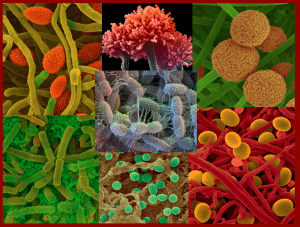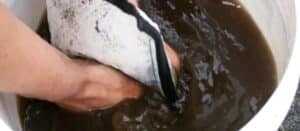Your lawn will be waking soon and begin drawing from the nutrients that it stored in its roots last fall. But there’s a limit to how much your lawn can store – even in perfect conditions, it will need a boost in spring.
And that’s where your spring lawn care program comes in.
Organic Lawn Fertilization Is Key In Spring
To keep maintained lawn areas healthy and green, it’s important to provide an early spring application of a balanced, slow-release organic fertilizer.
Not only does this feed the grass in your lawn, it also feeds your soil.
That’s important because your lawn depends on microbes in the soil to digest minerals and organic matter and convert them into a steady supply of plant-available nutrients. Many of the nutrients in fertilizers can’t be directly taken up by your lawn; grasses depend on soil microbes turn minerals and other materials into something useful.
As your lawn starts growing more actively in spring, it spends much of its energy producing exudates down in the root zone to attract and feed larger populations of soil microbes. The more soil microbes, the more nutrients are ultimately available to the grass in your lawn.
But if there aren’t enough microbes in your soil (when soil lacks a healthy biology), your lawn can’t get enough nutrients and will start to decline. Yellowing, bare patches, spindly grass, and slow growth are common signs that your lawn isn’t getting enough nutrients.
This is a common problem when using synthetic petrochemical fertilizers that leach easily, are short lived, and negatively affect the pH, salt index and microbes in the soil. Because it doesn’t improve soil biology, a synthetic fertilizer has a limited and short-term effect on the overall health of your lawn.
One thing you can do to help your lawn develop more biological activity in the soil is to apply actively aerated compost tea. We usually do this after applying an organic fertilizer.
This helps build the diversity of healthy soil bacteria which can make your lawn more resistant to diseases and insect pressures while maximizing critical nutrient availability.
If your lawn isn’t looking a good as it should, contact us for a free lawn consultation. We’ll be happy to take a look at what’s going on with your lawn and recommend a course of action to get you the lush green lawn you want.
GET THE LATEST NEWS
Subscribe to the Organic Plant Care Newsletter and get timely and helpful tips and updates monthly.
There's no spam - we promise!






